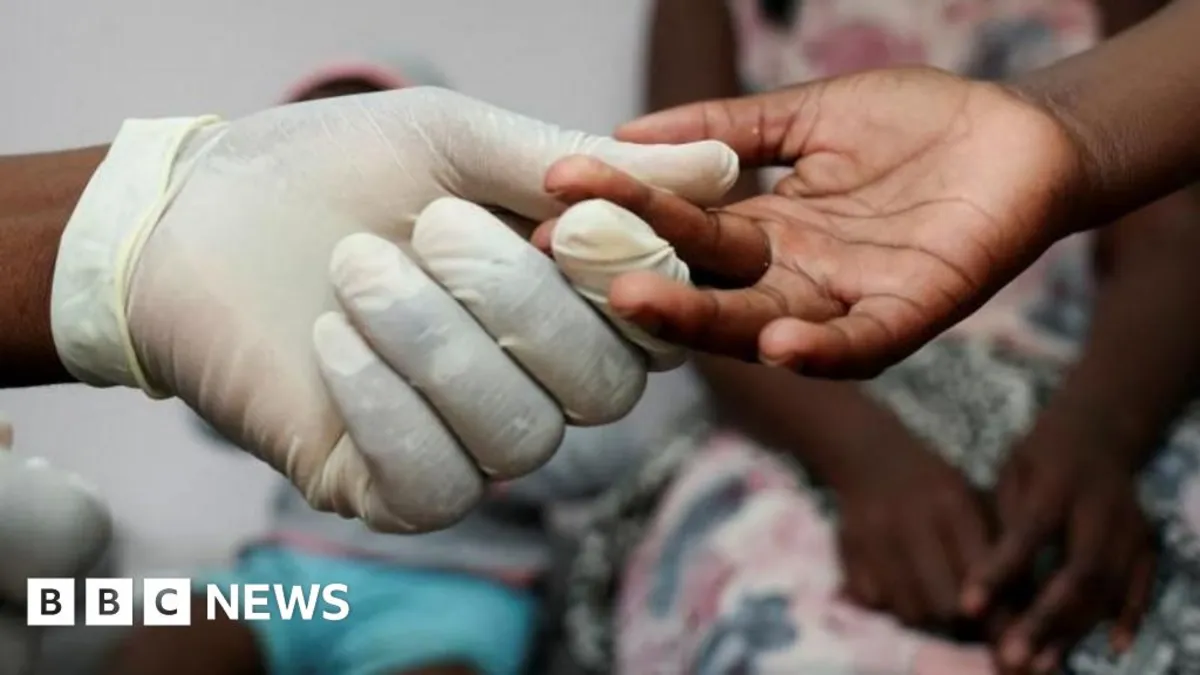
In recent months, the landscape of HIV/AIDS treatment in South Africa has faced a significant upheaval due to cuts in US aid funding. Gugu, a 54-year-old woman living with HIV, used to collect her antiretroviral medications from a USAID-funded clinic in downtown Johannesburg. However, with the announcement of President Trump's funding cuts earlier this year, she and thousands of other HIV-positive individuals are now confronted with an uncertain future regarding their treatment.
Fortunately for Gugu, her clinic notified her before its closure, allowing her to collect a substantial supply of antiretrovirals (ARVs) — a nine-month prescription instead of her usual three-month supply. As she anticipates running out of medication in September, Gugu plans to seek treatment at her local public hospital. A former sex worker, Gugu discovered her HIV-positive status after initially misdiagnosing her symptoms as tuberculosis. Since then, she has relied on ARVs, which are crucial for managing her health.
Gugu currently works as a project coordinator for a non-governmental organization (NGO) that assists pregnant sex workers in accessing their ARVs, ensuring their children are born HIV-negative. The NGO also conducts home visits to ensure mothers adhere to their medication schedules and to support them during monthly check-ups for their babies.
The crisis extends beyond individual stories like Gugu's. Many HIV-positive sex workers in South Africa depended on private clinics funded by the now-defunct USAID for their prescriptions and treatments. The drastic funding cuts have led to the closure of numerous facilities, causing widespread concern among health advocates and patients alike.
A forthcoming report from the UN body responsible for combatting HIV/AIDS highlights that these funding cuts could reverse years of progress made in the fight against the disease. Since 2010, there has been a 40% reduction in new HIV infections, and 4.4 million children have been protected from acquiring HIV since 2000, according to UNAIDS. However, these gains are now at risk, with projections indicating that if no action is taken, an additional six million new HIV infections and four million AIDS-related deaths could occur by 2029.
Gugu emphasizes that many sex workers may hesitate to seek treatment at public hospitals due to the lengthy wait times and the stigma associated with their profession. "To be seen at these facilities, you often have to arrive as early as 4 or 5 AM and may spend the entire day waiting for your medication," she explains. "For sex workers, time is money." Furthermore, Gugu shares her experience of registering at a local clinic, where she encountered a rude nurse who dismissed the unique challenges faced by sex workers, potentially deterring others from seeking necessary care.
Experts, including Prof. Lynn Morris, Deputy Vice-Chancellor of Johannesburg's Wits University, warn that these cuts could lead to an uptick in HIV infections and other infectious diseases. The phenomenon is particularly alarming given that South Africa has the highest number of people living with HIV in the world, with approximately 7.7 million individuals affected. The Trump administration's cuts threaten to unravel what has been hailed as one of the most successful public health interventions in history.
Initiated by former President George W. Bush in 2003, the President's Emergency Plan for AIDS Relief (PEPFAR) represented a monumental commitment of over $100 billion to combat HIV/AIDS globally. This initiative significantly contributed to South Africa's HIV/AIDS program, accounting for about 17% of its funding. The erosion of this support raises concerns about a potential resurgence in HIV infection rates.
The cuts also jeopardize critical research on finding an HIV vaccine and a cure. Prof. Morris notes that the lack of funding will hinder the development of new vaccines and the ability to monitor emerging viruses. South Africa has been a leader in HIV research, contributing to significant breakthroughs, including pre-exposure prophylaxis (PrEP) and new preventive drugs.
At Wits University, researchers like Associate Professor Abdullah Ely are working on developing an HIV vaccine. However, the cessation of US funding has stalled their progress. "When the stop order came, it meant we had to halt everything," Ely explains. The lab is now struggling to secure funding for clinical trials, which could set back crucial research by months or even years.
In response to the funding crisis, South African universities have requested a bailout of 4.6 billion South African rand (approximately $260 million) to mitigate the impact of US aid cuts. While some alternative funding has been secured from organizations like the Bill and Melinda Gates Foundation, it remains insufficient compared to the needs of researchers.
For Gugu, the hope for a future without HIV/AIDS is dimming. "I want to live as long as I can to take care of my nine-year-old," she shares, emphasizing the long-term implications of these funding cuts on future generations. As the global community watches closely, the consequences of these decisions will resonate far beyond South Africa, affecting health policies and practices worldwide.